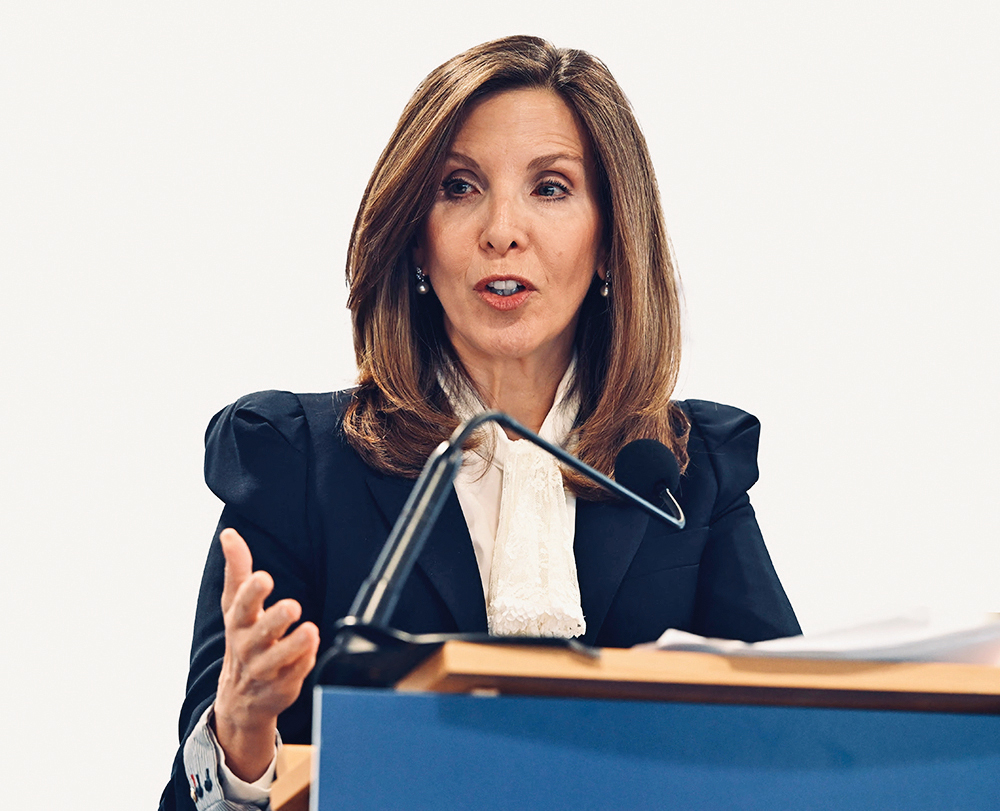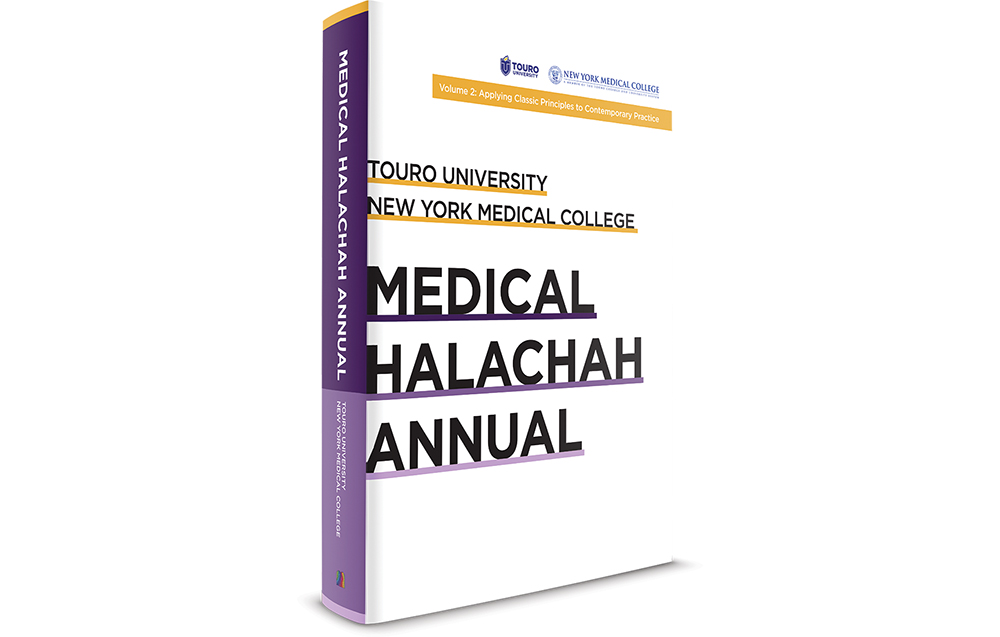
(Courtesy of Touro University) With the legalization of marijuana, news reports have indicated that using marijuana in all forms has been destigmatized. This has had a major impact on family relationships and mental health. Touro University Professor and Teaneck resident, Naomi Klapper, published research on this topic in the second volume of the Medical Halacha Annual journal recently released by Touro University and New York Medical College. In this Q&A, Professor Klapper shares information and insight on top-of-mind issues as relates to marijuana use in the community.
What is the difference between cannabis, hemp, marijuana, THC and CBD? What is potentially dangerous and what is not?
There is a lot of confusion around these terms, especially since many laymen use them incorrectly. Cannabis is a plant that makes a thick substance full of chemical compounds called cannabinoids. There are more than 100 of these chemical compounds in cannabis. They cause drug-like reactions in the body. The two most common compounds found in cannabis are CBD (cannabidiol) and THC (tetrahydrocannabinol).THC is the chemical that provides the sense of euphoria (often called “the high”) associated with marijuana. CBD does not have that effect. Marijuana contains much more THC and hemp is a type of cannabis plant that contains CBD.
How do these compounds affect the body?
We have two types of cannabinoid receptors in our bodies. Both CBD and THC attach to our bodies’ receptors that release neurotransmitters in the brain. THC, which is the main psychoactive compound in marijuana, binds with receptors that control pain, mood and other feelings. THC can make people feel euphoric and give them that so-called high. CBD doesn’t cause a high. Instead, it’s thought to work with other elements in the body linked to feelings of well-being.
There is a lot of debate about the medical benefits of marijuana. Why was it legalized and are there real medical benefits?
People use many products with CBD in them to help with symptoms for a variety of ailments, everything from arthritis, Crohn’s disease, diabetes, multiple sclerosis, anxiety, insomnia, chronic pain and depression. So far, there is not a lot of scientific evidence that CBD helps with any of these, but there are anecdotal reports that CBD offers benefits to sufferers of those conditions, and it is being heavily researched.
The FDA has approved one CBD-based drug, Epidiolex, which is a treatment for severe forms of childhood epilepsy. There are no other FDA-approved drug products that contain CBD. The data presented regarding CBD benefits is often from studies run by the same companies that manufacture the products. CBD is currently a hot topic for researchers. The National Institutes of Health (NIH) clinical trials database shows more than 160 trials involving CBD ongoing at this time.
One consideration for legalizing marijuana and selling it from dispensaries that are under government supervision is that the government can regulate the quality of what is purchased. Marijuana purchased on the streets can be laced with potentially dangerous and addictive fillers.
However, both the data on this subject of usage as well as the substance abuse experts I interviewed confirmed that in actuality, because the legalized dispensaries are taxed, it makes the marijuana purchased there much more expensive. So users (both addicted and recreational) are often still purchasing on the streets.

How did legalization of marijuana affect the frum community?
What legalization has done is destigmatized marijuana usage with astonishing speed. Research shows that surprisingly, even if you live in a state that has not yet legalized marijuana, your perspective has probably shifted. Legalization has even increased curiosity to try it. We have seen an uptick of people using marijuana, and openly talking about it—since the legalization—in every segment of society that I work with in my practice and in every age cohort.
Mental health practitioners in frum communities are concerned that they see people sharing marijuana with others (in all forms, such as gummies and chocolate with THC), for the experience, or to help them deal with normative or non-normative stressors. Patients tell us they were going through a stressful time and friends dropped off chocolate with THC or brownies with marijuana to help or even for recreational purposes, to “relax a little.”
Many of my teenage and young adult patients who were using marijuana recreationally tell me their parents buy their marijuana for them because they know they are going to use it, and they want to make sure it’s from “a safe place.”
Do people realize that legalized drugs are still addictive?
Legal drugs can still be dangerous, and addictive. Mental health professionals point to the opioid crisis, (where painkillers are the gateway to serious life-ruining addictions), and alcohol abuse. Legalizing marijuana destigmatizes it, changes societal norms and creates more opportunities for access. Legalized drugs can still become addictive and can have serious physical and psychological side effects. People often don’t know they have variables that make them more vulnerable, such as a genetic predisposition to addiction, severe anxiety, chronic depression or poor coping tools. And because it is so acceptable now and even normalized, they are often encouraged by friends to try it and may become dependent. They start to need it to get through the daily stressors of their lives.
Why is it of special concern to see the rising rates of marijuana usage, including in the Orthodox community, in teenagers and young adults since its legalization?
There are special concerns regarding long term usage, especially when begun during adolescence while the brain is still developing. Frequent marijuana use during adolescence has been linked to cognitive impairment. There is also a strong correlation between high school students who frequently use marijuana and a greater likelihood of dropping out of school. Dropping out of high school is a risk factor for a host of mental health issues.
What tools and guidelines do you have for parents that might help them navigate this new world of legal and readily available marijuana?
The American Academy of Pediatrics has compiled extensive research of variables that correlate with lower addiction rates in adolescents. The research finds that parental influence and guidance are paramount in shaping a child’s attitudes and behaviors towards drug use. As primary role models, parents should abstain from consuming drugs, particularly in the presence of their children. A child’s decision to experiment with drugs is often a reflection of their parents’ own substance use. Ideally beginning in elementary school, parents should have candid discussions with their children about the benefits of healthy choices and risks of cannabis use.
Educating children on the deleterious effects of drugs on the developing brain and body is crucial. It is important to correct any misperceptions a child may hold, such as the belief that “everyone does it” and “drugs like marijuana are harmless.” Parents should also establish clear rules and reasonable consequences within the household to promote structure and accountability. Moreover, they should avoid exposing children to media that glamorize or normalize drug use.
Spending quality time engaging in shared interests and activities with children, such as instituting family dinners, is vital for emotional and social development, and correlates with lower risk of substance abuse. Praising children for making good judgments and providing constructive criticism for poor decisions nurtures their self-confidence and leads to better life outcomes. Parents can further support children by equipping them with strategies to refuse drugs, such as role-playing different ways to say no in the face of peer pressure to use marijuana.
The Medical Halacha Annual Journal Volume 2 can be purchased through the publisher, Mosaica Press. Questions regarding marijuana use and mental health can be emailed to Professor Klapper through her website: Klappertherapy.com. In addition to being chair of the Psychology Department at Touro’s Lander College for Women, Professor Klapper maintains a private therapy practice in New York City and Teaneck.









